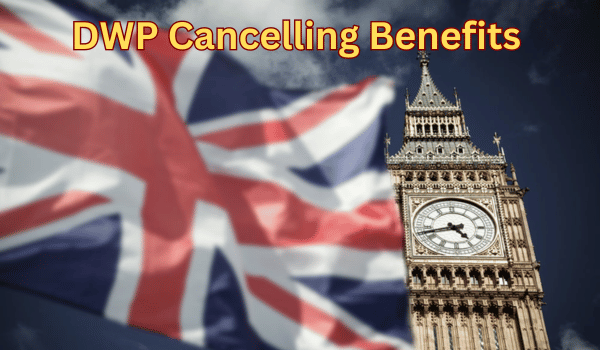DWP is Cancelling 4 Benefits: Who is Affected? New Changes in Financial Year 2024-25 and more details are here. In a significant overhaul of the UK welfare system, the Department for Work and Pensions (DWP) is set to cancel four longstanding benefits by the end of the financial year 2024-25.
Contents
DWP is Cancelling 4 Benefits
This change is part of a broader strategy to transition all remaining claimants of Working Tax Credit, Child Tax Credit, Jobseeker’s Allowance (JSA), and Income Support to Universal Credit (UC). Here’s what you need to know about who will be affected and how the transition will unfold.
The move to Universal Credit represents a major shift in the UK’s welfare system. Universal Credit is designed to streamline multiple benefits into a single monthly payment, simplifying the system and reducing administrative costs. By the end of the new financial year, the DWP aims to complete the transition for all legacy benefit claimants. This includes approximately 500,000 households still receiving tax credits or the older benefits mentioned.
The migration process will be carefully managed to ensure that no one loses their support during the transition. Claimants who have not yet made the switch to Universal Credit by the end of the previous month risk having their payments stopped. To avoid disruption, it is essential for affected households to apply for Universal Credit as soon as possible.
New Payment Levels Before Cancellation
For those still on tax credits before their transition, HM Revenue and Customs (HMRC) has announced updated payment levels. These increases will be the final adjustments to tax credits before the system is phased out.
Working Tax Credit Adjustments:
- Basic Element: Increased from £2,280 to £2,435 per year.
- Couple and Lone Parent Element: Raised from £2,340 to £2,500 per year.
- Disabled Worker Element: Up from £3,685 to £3,935 per year.
- Severe Disability Element: Increased from £1,595 to £1,705 per year.
- Childcare Costs: Remain at £175 for one child and £300 for two or more children.
Child Tax Credit Adjustments:
- Family Element: Remains at £545 per year.
- Child Element: Raised from £3,235 to £3,455 per year.
- Disability Element (Disabled Child Rate): Increased from £3,905 to £4,170 per year.
- Disability Element (Severely Disabled Child Rate): Up from £1,575 to £1,680 per year.
These changes are intended to provide additional support to those who have not yet transitioned to Universal Credit and will ensure that claimants receive fair levels of support until the system is completely phased out.
Universal Credit Migration Timeline and Process
The DWP has outlined a detailed plan for the migration process, starting from April 2024. The transition will occur in several phases:
- April 2024: Migration notices will be issued to those receiving Income Support and those on Tax Credits with Housing Benefit.
- June 2024: Housing Benefit-only claimants will begin their transition to Universal Credit.
- July 2024: Claimants on Employment and Support Allowance (ESA) with Child Tax Credits will be notified.
- November 2024: Jobseeker’s Allowance recipients will start their transition.
From November 2024, the focus will shift to tax credit claimants over the State Pension age. These individuals will be guided to apply for either Universal Credit or Pension Credit, depending on their circumstances.
UC Support for Affected Households
The DWP recognizes that transitioning to a new benefits system can be challenging, particularly for those who have been on the legacy system for many years. To address this, the department is committed to offering extensive support throughout the migration process. This includes providing assistance through various channels to ensure a smooth transition for all affected households.
The government has assured that it is actively reviewing and revising its approach based on feedback to improve the process and address any concerns that arise. Employment Minister Jo Churchill emphasized that while the transition has been largely smooth so far, the department remains vigilant in addressing any issues promptly.
Implications and Considerations
The cancellation of these four benefits marks a significant shift in the UK’s welfare landscape. For many, this change represents a move towards a more streamlined and modern benefits system. However, it also requires careful planning and timely action to avoid disruptions in support.
Affected individuals should carefully review the new Universal Credit application process and ensure they meet all deadlines to maintain their financial support. The DWP’s commitment to providing support during this transition is reassuring, but proactive engagement with the system will be crucial to ensuring a smooth changeover.
In conclusion, the cancellation of Working Tax Credit, Child Tax Credit, Jobseeker’s Allowance, and Income Support represents a pivotal moment in the evolution of the UK welfare system. As the transition to Universal Credit progresses, affected households should stay informed and take necessary steps to ensure continued support.

Rohan Manjrekar is a writer and consultant in scholarships and financial aid, dedicated to simplifying college funding. His work focuses on debt reduction and maximizing educational access for students from all backgrounds.

